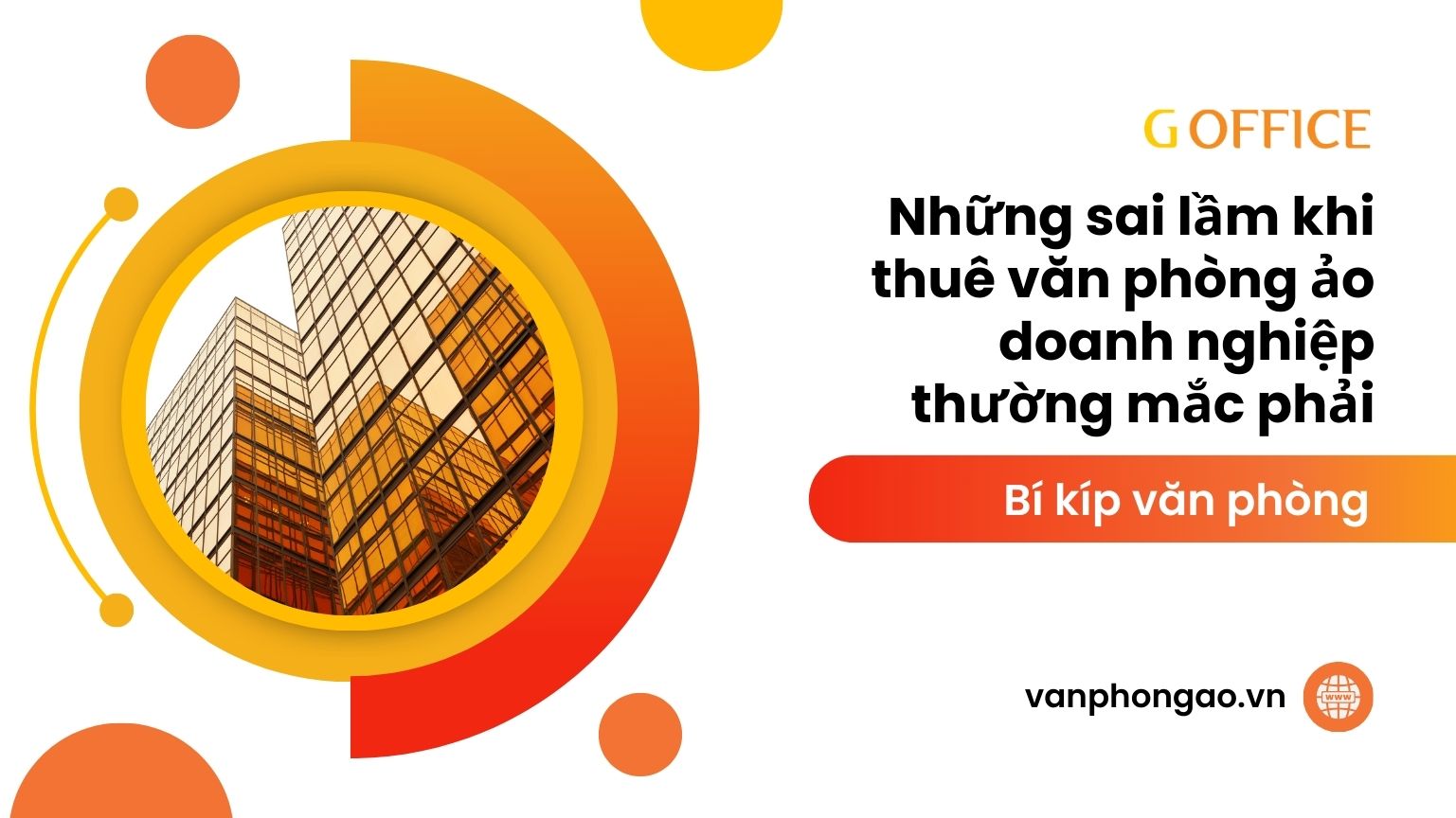Office, a popular concept that we often hear about in everyday life, is the center of an organization or business. It is where management, administrative and information activities take place, and is also an important point of contact between departments and with the outside world. However, many people still have questions: What is an office? and what is its role in the business environment? To better understand this concept, let's delve deeper into exploring the aspects and functions of the office.
What is an office?
An office is a space or a set of facilities, equipment and human resources organized to perform administrative, management and other work related to business or organizational activities. position. Office activities often include document processing, communication, information management, planning, conference organizing, and other tasks that support the core operations of the organization.
Offices can take many different forms, from traditional offices with desks, computers, printers and office equipment, to virtual offices or mobile offices where employees can work. remotely through communication technologies. In a large organization, the office can be a vital part of the infrastructure, providing support to various departments such as sales, finance, human resources and marketing.

Who works in office space?
Office workers are people who work in an office environment and perform administrative and information management tasks to support the day-to-day operations of an organization. Their jobs are diverse and may include word processing, information management, internal and external communications, administrative support, information technology support and facilities management.
They can work in a variety of different departments and positions within the organization, including areas such as administration, finance, human resources, marketing and management. Depending on the specific needs of the organization, office staff positions may have different names such as administrative assistant, information manager, technical support staff or human resources support staff. the.
In their roles, office workers often must have good organizational skills, the ability to work independently and in groups, as well as communication skills and process information accurately and effectively. At the same time, they also need flexibility to respond to requirements and changes in the work environment.
What is the role of the office?
The office role is extremely important within an organization and includes the following duties:
- Administrative support: The office is responsible for handling administrative tasks such as document management, handling correspondence, scheduling appointments, and ensuring daily operations run smoothly.
- Information and data management: This place often has to manage and preserve the organization's important information and data, including documents, employee records, and customer data.
- Internal and external communication: The office is responsible for internal communication between departments and employees, as well as external communication with partners, customers, and other stakeholders.
- Management and decision-making support: Offices often provide information and data to support managers in planning, decision-making, and problem solving.
- Human Resources Support: The office typically supports human resources activities by managing employee records, processing salaries and benefits, and assisting in the hiring and training process of new employees.
- Facilities Management: The office is also responsible for maintaining and managing physical facilities such as office equipment, workspace, and other resources.
- Information Technology Support: It provides technical support to employees on the use and maintenance of office equipment and software, ensuring that information technology is used effectively and safely .

In short, the role of the office is to ensure that the organization's activities are carried out efficiently and flexibly by providing support and management for administrative and management activities. and business.
Popular office types today
Below is a detailed description of three popular office types: traditional office, shared office and virtual office.
Traditional office:
- Characteristic: A traditional office is a fixed office space, usually located in buildings or commercial areas. It has separate offices, meeting rooms, and amenities such as printers, fax machines, and telephones.
- Advantage: Provide professional and private working space for employees. Convenient for direct communication and internal collaboration.
- Defect: High costs, need to pay for renting and maintaining office space. No flexibility for employees working remotely.
Coworking space:
- Characteristic: Shared office is a co-working space used by many individuals or businesses. Amenities such as desks, meeting rooms and rest areas are often shared.
- Advantage: Reduce office space rental costs compared to traditional offices. Create opportunities to communicate and collaborate with other individuals and businesses.
- Defect: There is often less private space than in a traditional office. The work environment may not be suitable for some people.
Virtual office:
- Characteristic: Virtual office There is no specific office space. Instead, it uses online services such as email, phone, and customer support to conduct business operations.
- Advantage: Costs are lower than traditional and shared office types. Flexibility for remote workers and for businesses with distributed employees.
- Defect: Lack of face-to-face communication and meetings with colleagues and customers. Sometimes it is difficult to build relationships and trust.

Each type of office has its own advantages and disadvantages and is suitable for the specific goals and requirements of organizations and individuals.
Some experiences in choosing to rent an office you should know
When choosing to rent an office, there are some important considerations you should know to ensure that your decision reflects the specific needs and requirements of your organization or business. Here are some important experiences:
- Determine your needs and budget: Before starting your search, clearly define your needs and budget. This includes the required area, preferred location, required amenities and monthly affordability.
- Market research: Learn about the local office market to understand average rental prices and available options. Compare different facilities to make sure you get the right price and amenities.
- Choose the right location: Choosing an office location can determine the success of your business. Consider proximity to customers, public transportation, and amenities such as restaurants, shops, and other services.
- Consider utilities and services: Make sure to check the utilities and services included in the rental price, such as Internet, electricity, water, technical support services, and cleaning services. This helps avoid surprises about costs later.
- Check the legal status and terms of the contract: Read the rental contract carefully and understand the terms, including deadlines, cancellation conditions and penalty fees. Check if there are any legal issues with the building or the owner.
- Visit in person and ask questions: Before deciding, visit the offices you're interested in in person and ask questions to the owners or managers about any issues you have.
- Consider flexibility: Explore the possibility of adjusting the space or lease length if necessary in the future, especially if your business is growing.
- Evaluate the work environment: Consider the work environment and additional amenities such as meeting rooms, conference rooms, and break areas.
By following the above steps carefully, you can choose the most suitable office space for your organization or business.
You are looking for a space Office for rent in Ho Chi Minh City? Come to G Office! With diverse options of office types, from virtual office, complete office arrive fixed working seat, we are committed to providing you with an ideal working space, suitable for all business needs.

With extremely economical and flexible prices, you will save a lot on office rental costs. At the same time, we provide all necessary equipment, from high-speed Internet, telephone, to other office amenities such as meeting rooms, reception rooms and break areas.
Don't hesitate to contact us today for more details and to schedule a visit. Start a professional and effective working environment with us!
See also:
- Shared Office: The innovation of the working model in the era of connection
- Office space rental - The ideal choice for freelancers
- Explore G Office's package of 16 virtual office utilities




